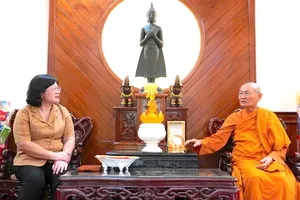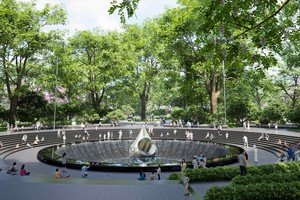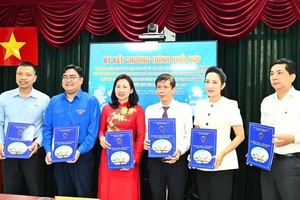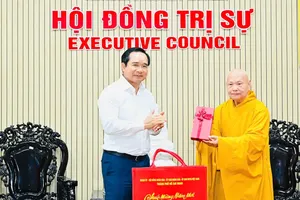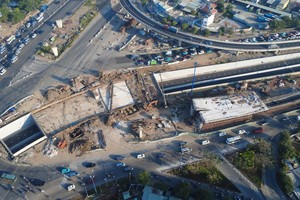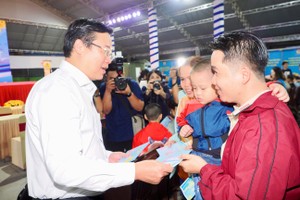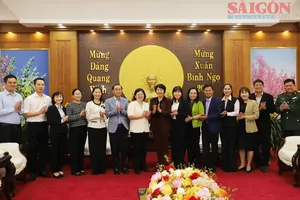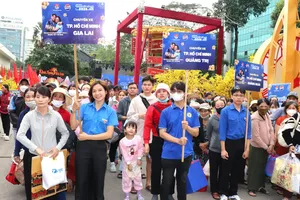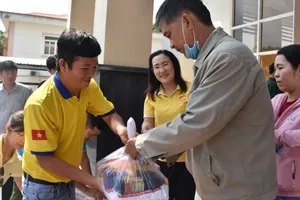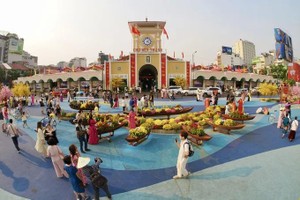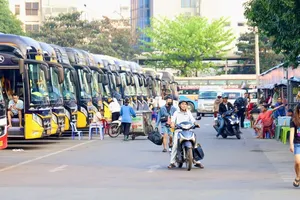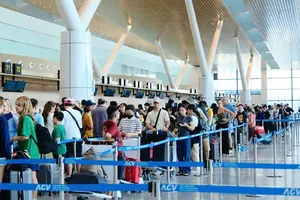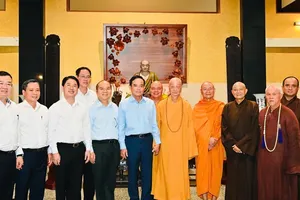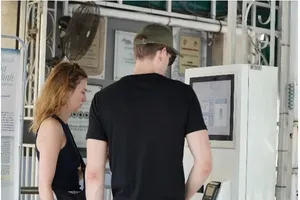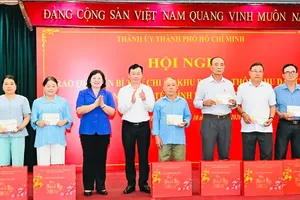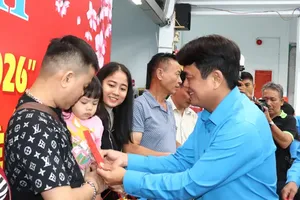At a meeting on May 11 with a delegation led by Secretary of the Party Committee of Ho Chi Minh City Nguyen Van Nen and Vice Chairman of the city People's Committee Le Hoa Binh, and leaders of departments, Chairman of District 7 People's Committee Hoang Minh Anh Tuan told about development orientation of District 7 for the next 10-20 years towards high-quality health and education.
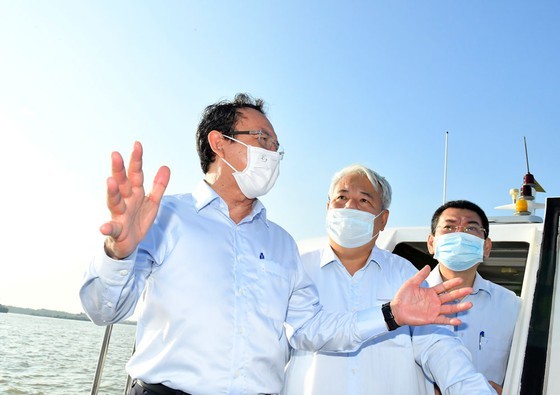
Therefore, the district administration planned the conversion of 500-ha of land along the Saigon River, industrial clusters, export processing zones schools for building universities, medical facilities, and hospitals.
At the meeting, District 7 Party Secretary Vo Khac Thai summarized the socio-economic condition voicing several proposals including early investment in bridges connecting District 7 with Thu Duc City, District 4, and Nha Be District.
Chairman of District 7 People's Committee assessed that some areas in the district are not currently exploiting their full potential. For example, the Phu My industrial cluster and the Tan Thuan Export Processing Zone with a total area of 450 hectares are used for warehouse and logistics development; hence, the district has not collected high budget revenue. Therefore, the district petitioned Ho Chi Minh City to change towards high-quality commercial and services.
Director of the city Department of Natural Resources and Environment Nguyen Toan Thang said the district has more than 149 hectares of agricultural land. According to the plan, District 7 will no longer have agricultural land; in another word, District 7 is allowed to convert this land to non-agricultural purposes. This is an important resource, so the district needs to study and use it appropriately in order to create surplus value, contributing to the district’s economic development.
Chief Officer of Ho Chi Minh City Party Committee Huynh Khac Diep agreed to greenlight the conversion of land in District 7. Vacant land of nearly 5,700 square meters in Tan Kieng ward, currently located between two schools, is no longer suitable for building a commercial center, high-rise buildings but schools. Similarly, the Office of the City Party Committee of Ho Chi Minh City also allowed the district authority to build schools on nearly 10,500 square meters of land in Phu My ward.
Speaking at the meeting, Mr. Nen commented, rates of urbanization in the district have been increasing rapidly. The real estate market in the district developed fastest in the city where many foreigners opt to live and work.
The county also has a rapidly changing economic structure. Before, the district’s agriculture accounted for over 90 percent, but up to now, the district authority has taken heed of commerce - service and industry, of which the trade - service sector accounts for 70.9 percent while agriculture has only one percent.
In implementing and bringing the Party's Resolution to life, Secretary Nen supposed District 7 has implemented administrative reform associated with building smart city and e-government; renewing urban; and improving the quality of residents’ living conditions.

